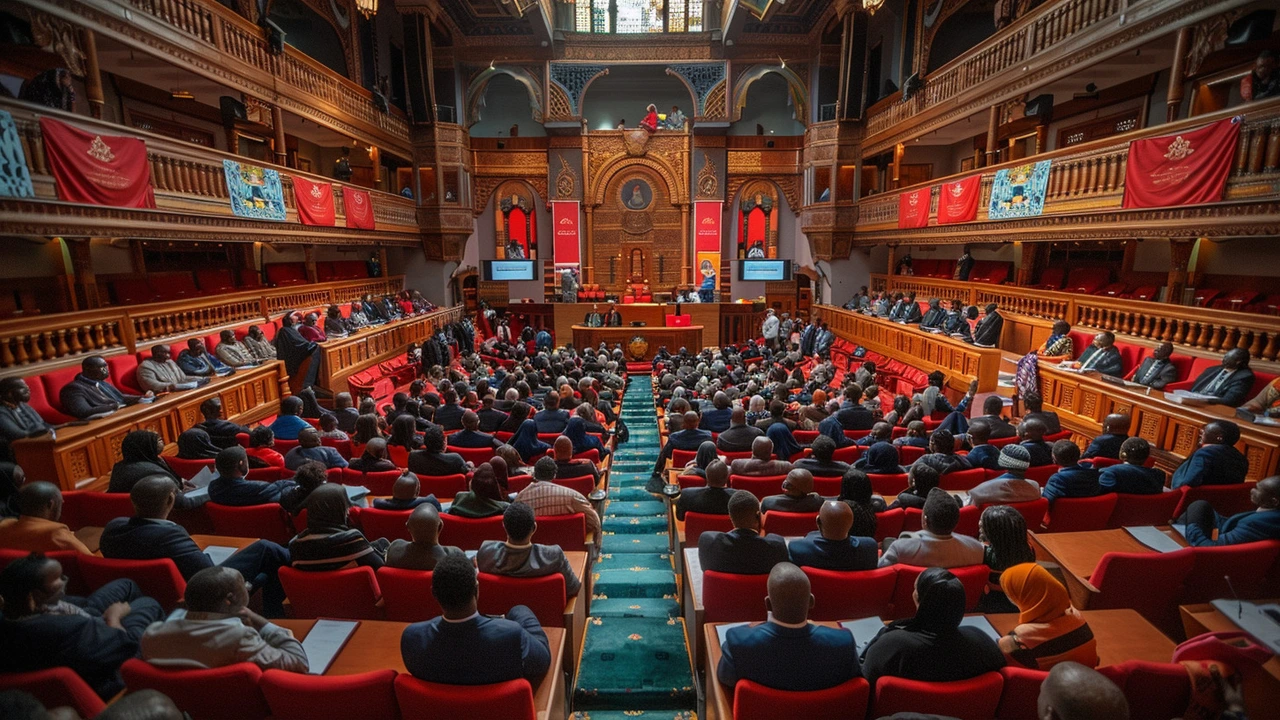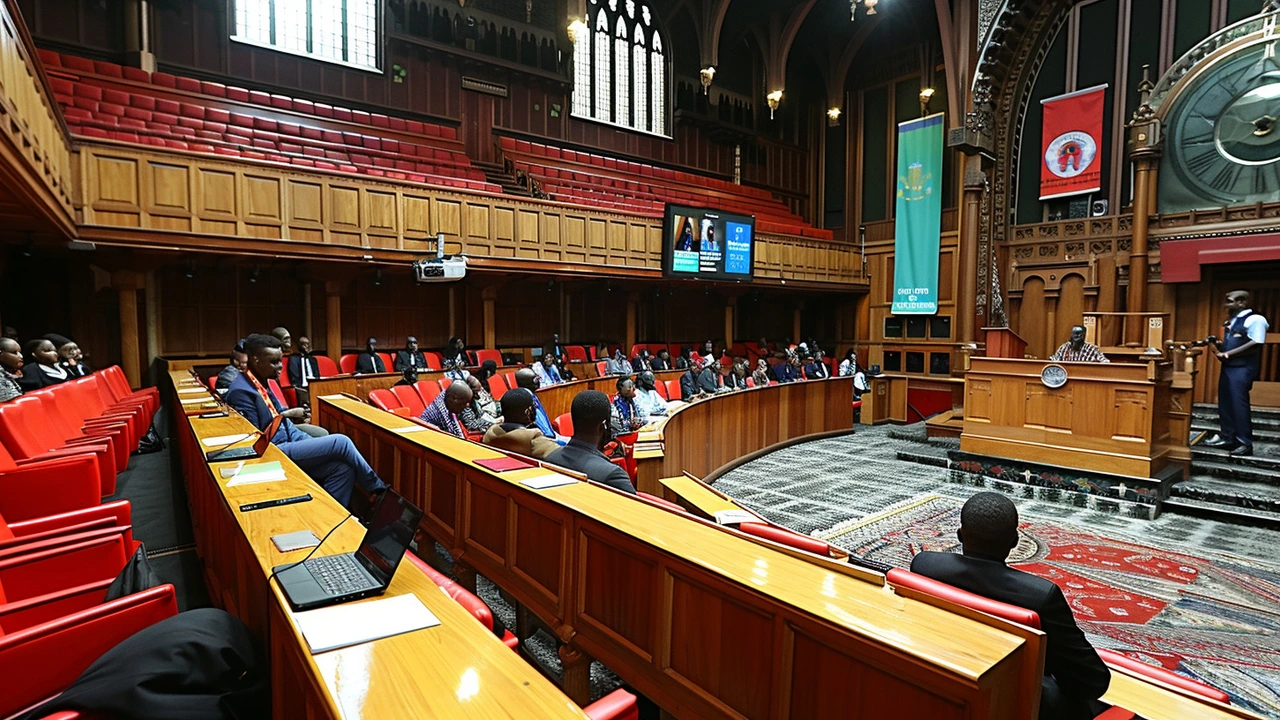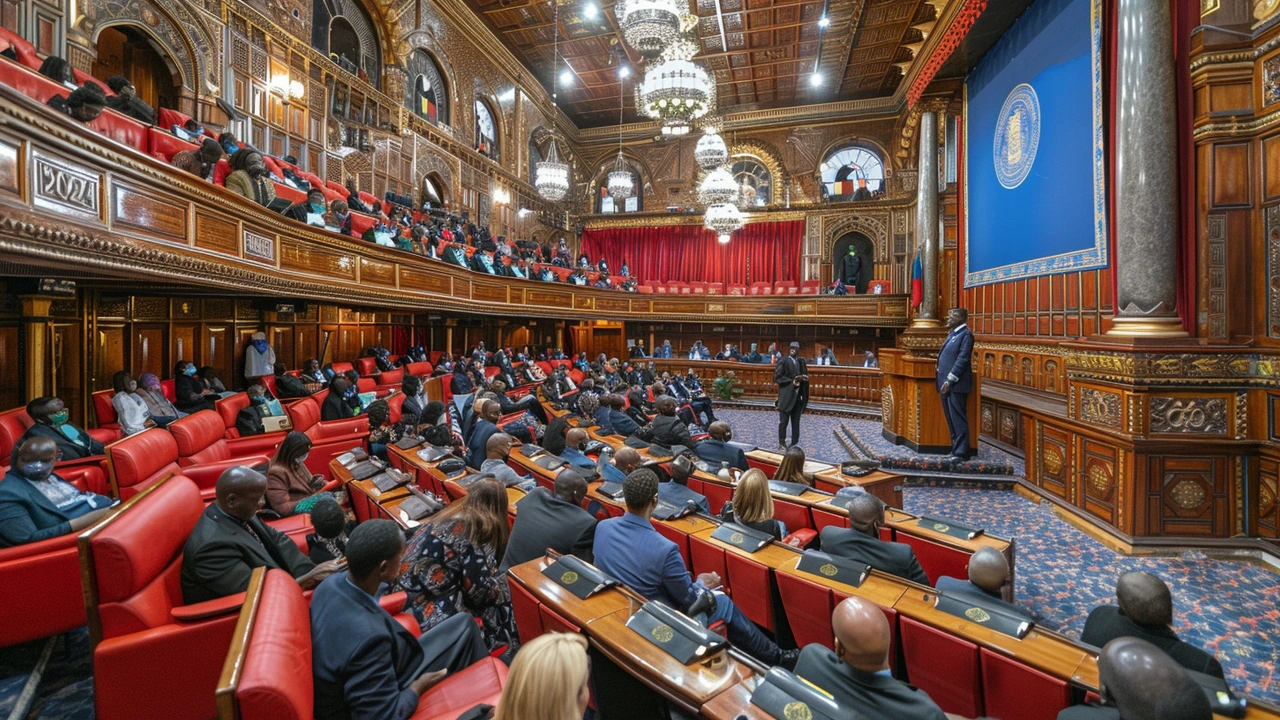National Assembly Begins Heated Debate on Controversial Finance Bill 2024
18 Jun, 2024Introduction to the Finance Bill 2024
The Finance Bill 2024 has become a focal point of intense debate and controversy in Kenya. Set to be debated in the National Assembly, this piece of legislation has significant financial implications for millions of Kenyans. The bill, aiming to raise Ksh 2.92 trillion through various tax measures, is part of the broader budgetary framework for the 2024-25 financial year, which was unveiled by Treasury Cabinet Secretary Njuguna Ndung'u. These proposals have elicited a strong response from the public, culminating in plans for a sit-in protest at Parliament buildings as a demonstration of dissatisfaction and to garner support against the bill.
Details of the Controversial Tax Measures
The proposed Finance Bill 2024 encompasses a variety of tax measures designed to boost local revenue. Details of these measures are not just technocratic stipulations but elements that could affect daily life for millions. Aspects of the bill propose new taxes on essential goods and services that many view as disproportionately burdening lower and middle-income families. The controversial nature of these measures has drawn the ire of the public, who see them as adding further strain to the already high cost of living.
Public Sentiment and Mobilization
Kenyans have been proactive in voicing their opposition to the Finance Bill 2024. Grassroots movements and social media campaigns have mobilized the public to protest against what they perceive as unjust taxation. The sit-in at Parliament buildings is expected to be a focal event, showcasing the unity and resolve of a disgruntled populace. Through these actions, citizens hope to influence the members of the National Assembly to reconsider some of the most contentious proposals within the bill.
Political Reactions and Opposition
Westlands MP Tim Wanyonyi has stood out as a vocal critic of the Finance Bill 2024. Expressing profound concern over the potential impact of the bill's tax measures, Wanyonyi has pledged to oppose any aspects that he believes would compound hardships for Kenyans. While he acknowledges the necessity of taxation for national development and public services, he has argued that some provisions of the bill are excessively punitive. His stance is emblematic of broader political opposition to the bill, as numerous MPs and political pundits share his concerns.
The Role of the Finance and Planning Committee
The Finance and Planning Committee is integral to the legislative process surrounding the Finance Bill 2024. The committee's report will be presented for the second reading in the National Assembly, marking a crucial step in the bill's passage. The contents of this report and the committee's recommendations are highly anticipated, as they will shape the ensuing parliamentary debate. Observers are keen to see how the committee's findings will influence both supporters and detractors of the bill.

Potential Impacts of the Finance Bill
Should the Finance Bill 2024 pass in its current form, its ramifications will be wide-ranging. One of the primary concerns is its effect on the cost of living. By increasing the tax burden on essential goods and services, the bill could exacerbate an already difficult economic situation for many households. In addition to immediate financial implications, there are concerns about long-term economic impacts, particularly on small and medium enterprises (SMEs) that might struggle to absorb the additional costs, potentially leading to higher unemployment and slower economic growth.
Calls for Amendments and Revisions
Given the widespread opposition, there have been calls for amendments to the bill. Various stakeholders, including business groups, civil society organizations, and everyday Kenyans, are advocating for revisions that would lessen the financial strain on vulnerable populations. These proposed amendments aim to strike a balance between generating necessary revenue and ensuring that the tax measures do not disproportionately affect those least able to bear the increased costs.
Historical Context of Tax Legislation in Kenya
The Finance Bill 2024 is not the first time Kenya has seen contentious tax legislation. Historical precedent shows that tax measures often evoke strong public and political reactions. Past experiences have demonstrated the importance of public consultation and the need for a tax regime that aligns with social equity. Learning from these historical lessons could provide valuable insights for the current debate, guiding legislators toward a more balanced and effective tax policy.

Conclusion: The Road Ahead
As the National Assembly begins its debate on the Finance Bill 2024, the outcome remains uncertain. The bill's provisions could be passed as proposed, modified through amendments, or potentially rejected. What is clear, however, is that this legislative process has profound implications for Kenya's financial future. The voices of protest, the political opposition, and the deliberations of the Finance and Planning Committee will all play pivotal roles in shaping the final form of the bill.
In the coming days, as the debate unfolds, all eyes will be on Parliament, where the decisions made will resonate through every sector of Kenyan society. The hope for many is that a balanced and fair resolution can be achieved—one that secures the necessary revenue for national development without unduly burdening the most vulnerable citizens. Only time will tell how this critical chapter in Kenya's financial history will be written.

 by
by